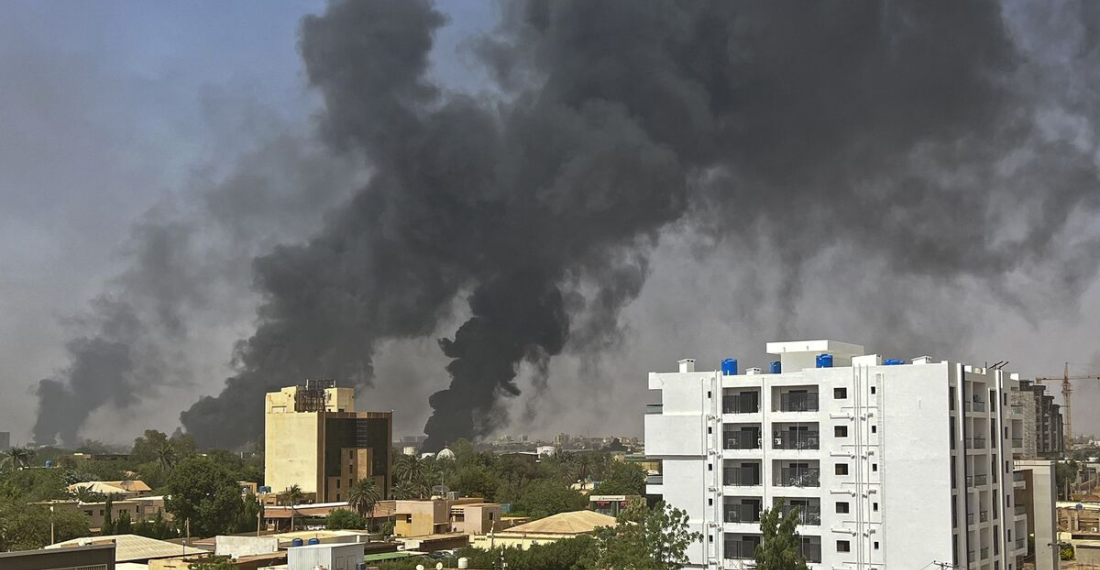Sudan is entering its third day of fighting after tensions between leaders of Sudan's army and a rival paramilitary group the Rapid Support Forces (RSF) erupted into violence in the capital, Khartoum, on Saturday (15 April).
According to the Sudanese doctors' union, at least 100 civilians have died during the violence despite a temporary ceasefire observed on Sunday to allow the wounded to be evacuated.
Violence erupted in the capital city of Khartoum on Saturday after the army and a rival paramilitary group failed to reach an agreement concerning the transfer to civilian rule of the country.
Since a coup in October 2021, Sudan has been run by a council of generals, and two military men at the centre of the dispute. On the one hand, there is General Abdel Fattah al-Burhan, who is the head of the armed forces and in effect the country's president, and on the other is his deputy and leader of the Rapid Support Forces (RSF), Gen Mohamed Hamdan Dagalo, better known as Hemedti.
Humanitarian conditions in Khartoum are said to be worsening, with reports of people running out of food and water. Speaking to the BBC, Sudanese woman Duaa Tariq said that some people have been without power for two days, shops are closed and local residents did not have time to restock on supplies in many parts of the capital before fighting broke out.
International calls for peace
The violence has led to international calls for peace to be restored.
The former Sudanese Foreign Minister Mariam al-Sadiq al-Mahdi said, "the army must go back to the barracks and civilians must rule for a transitional period for a short time, then move to free and fair elections."
Meanwhile the UK Foreign Secretary James Cleverly said, "ultimately, the immediate future lies in the hands of the generals who are engaged in this fight and we call upon them to put peace first, to bring an end to the fighting and to get back to negotiations. That's why the people of Sudan want. That's what the people of Sudan deserve and we will continue to seek ways to support that road back to peace."
The President of Uganda, Yoweri Museveni, said that an "unconditional and immediate cessation of hostilities to stop the tragedy and mockery of Africa is of utmost importance".
African presidents agree to mediate
On Monday morning (17 April), the BBC reported that the eight-country trade bloc regional grouping The Intergovernmental Authority on Development agreed on Sunday to send the leaders of Kenya, South Sudan and Djibouti to the capital Khartoum to mediate.
The international airport in Khartoum is closed, however, so it is uncertain if any such peace initiative can begin.
source: commonspace.eu with BBC
photo: Bloomberg News







